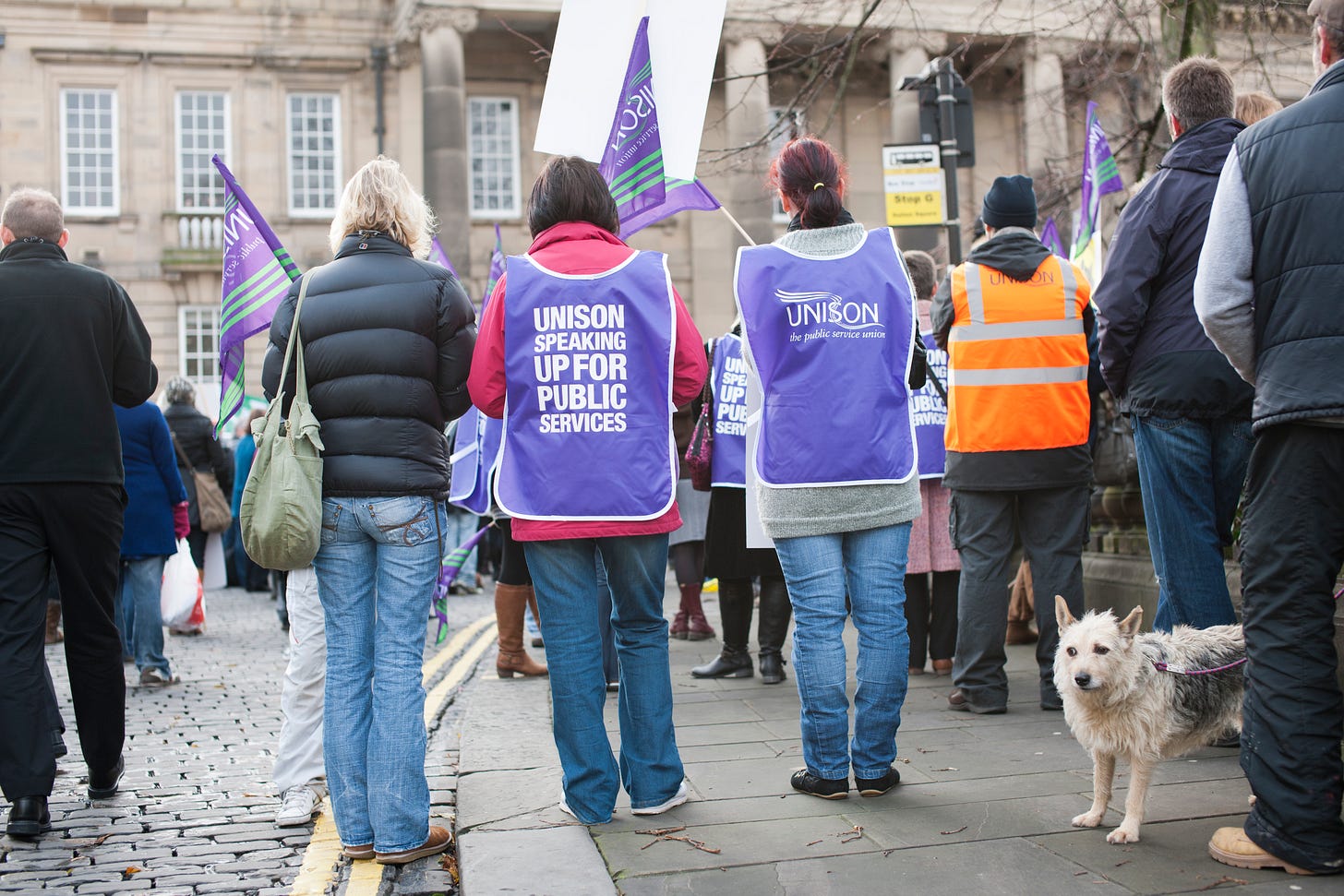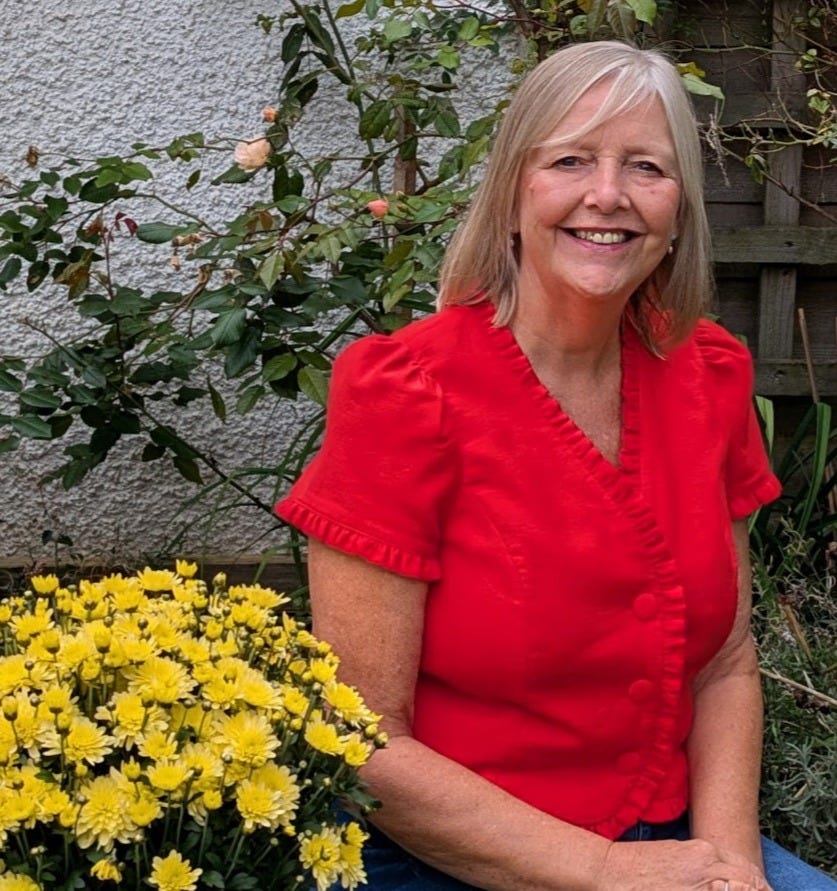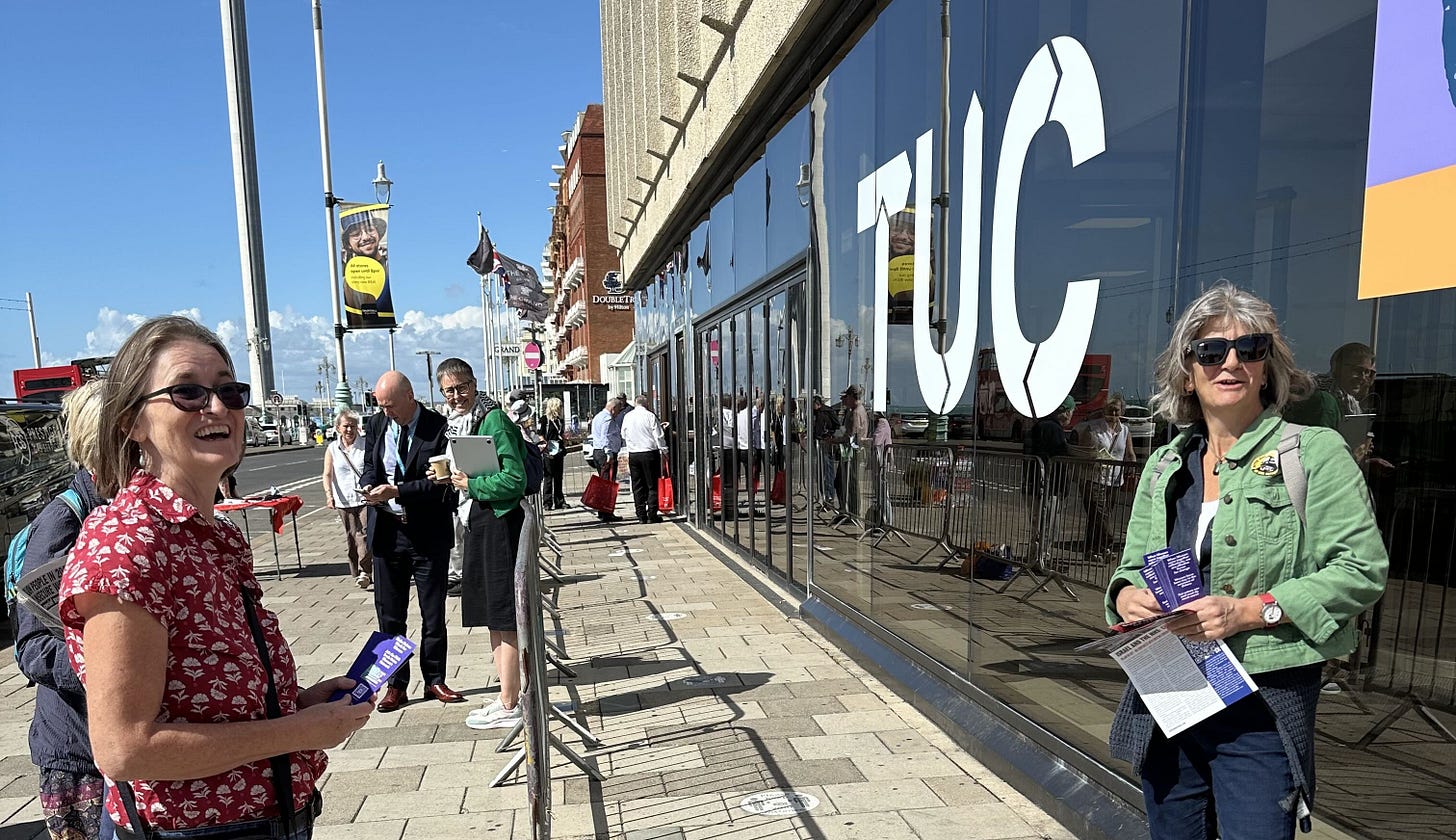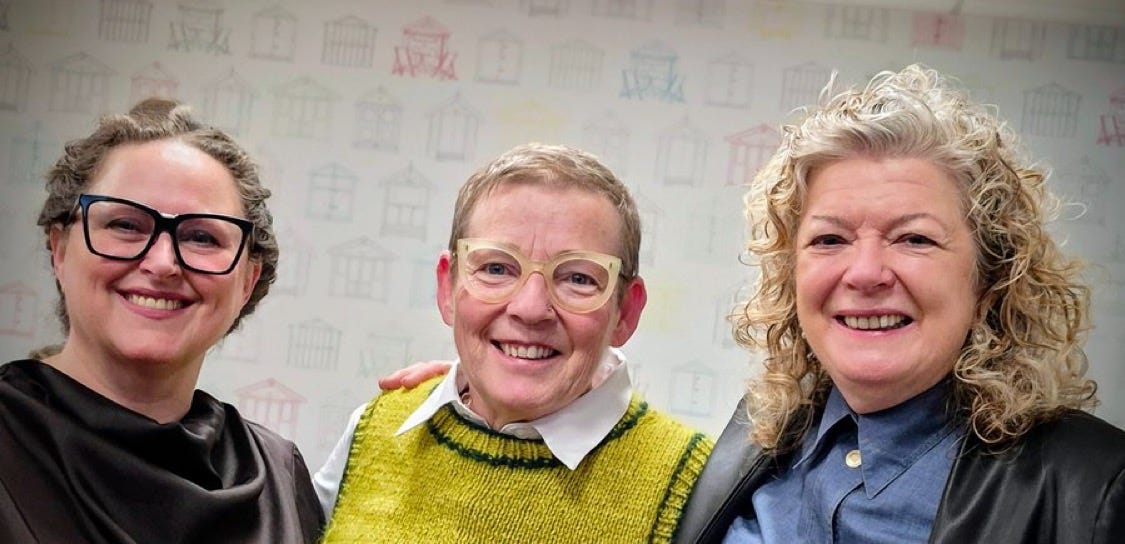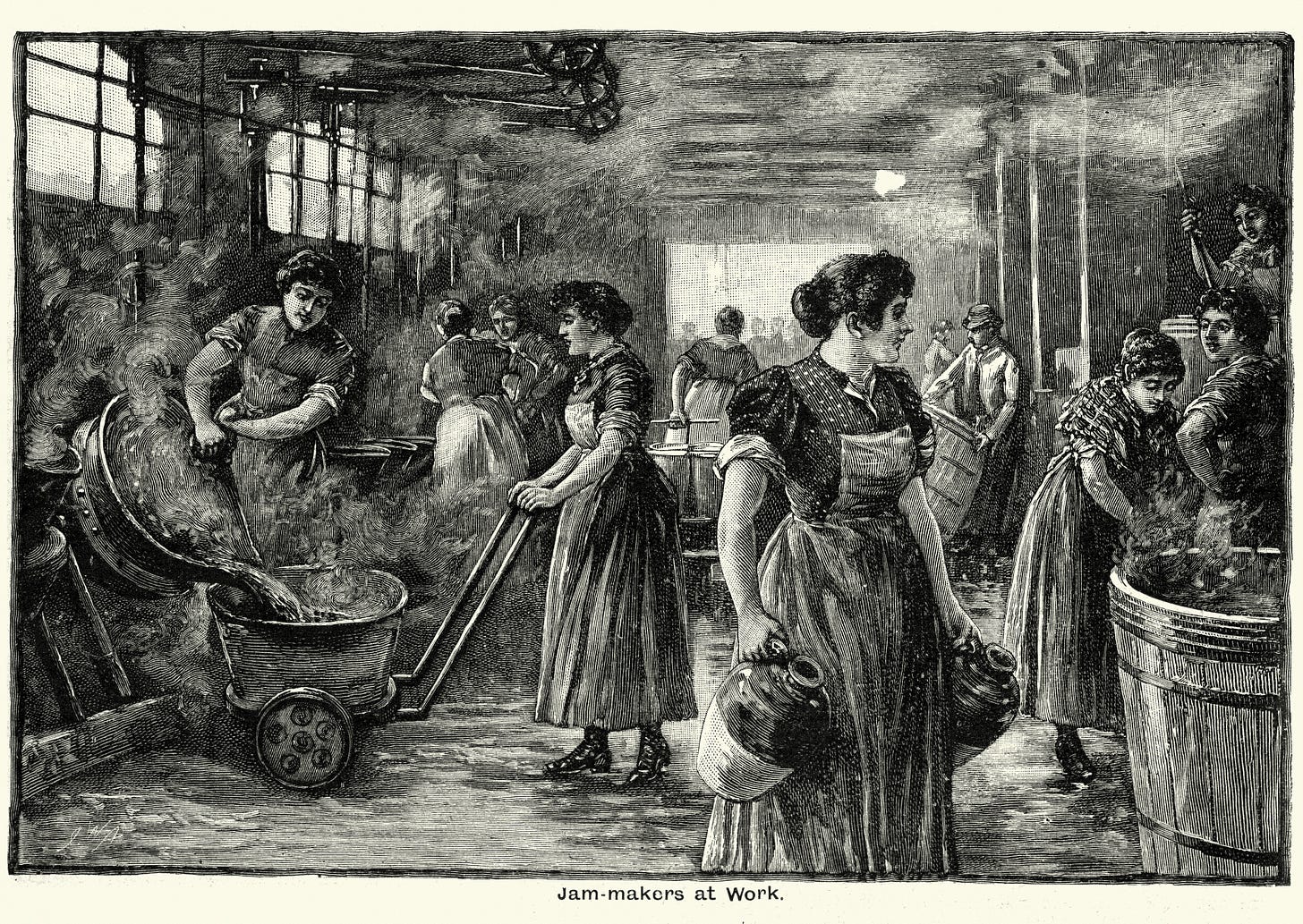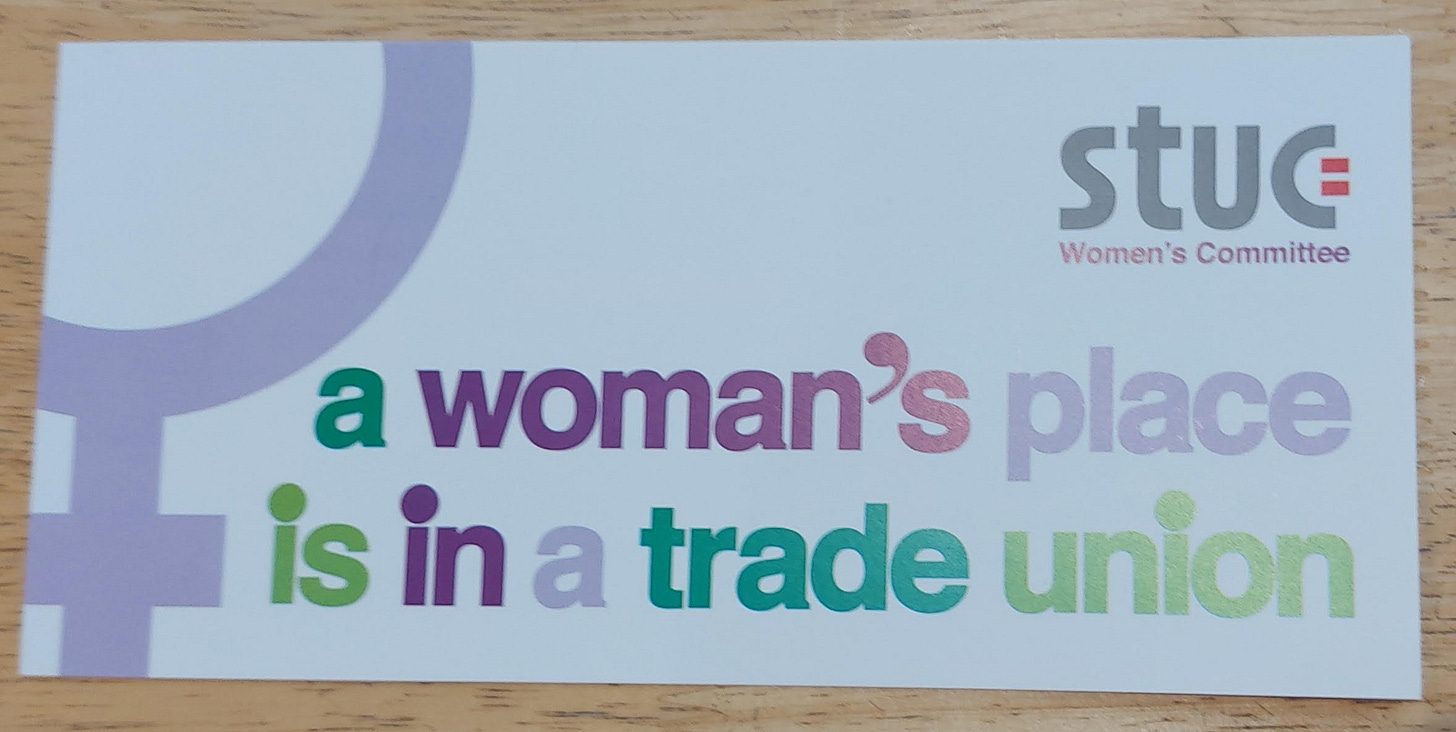ISSUE 11: The Frontline
A 21st century feminist publication where women's voices have power
Trade union members protest against proposed changes to the public sector pensions and government spending cuts, Lancaster, 2011. Pic via John Shepherd on iStock
The Scottish Trades Union Congress STUC) Women’s Conference takes place in Glasgow next week (29-30 October) so in this issue, we have turned the spotlight on women and trade unions.
Women have a long history in the trade union movement. Our Woman of the Week is Emma Paterson, born in 1848 and dubbed the “mother of women’s trade unionism.” But as Emma’s story shows, that history has often not been easy. Women had to fight from the start to be heard within the trade union movement. And the fight for our voices to be heard goes on.
We hear from long-time activist in the Public and Commercial Services Union (PCS) Fiona Macdonald, who explains why she is taking her union to court for discrimination. Another woman with a long history of trade union activism, Philipa Harvey, writes passionately about why trade unions matter for women and women should matter to trade unions, and how she hopes a new national network for women trade unionists will help strengthen women’s voices within the movement.
Two more women with decades of union membership and activism, Alison-Ann Dowling and Norma Austin Hart, then tell us why they too are resorting to legal action against their union, Community The Union, for ignoring a conference vote by its members, and the UK Supreme Court’s judgment on the Equality Act 2010.
Trade unions have been in the news too often in recent years for resisting the recognition of sex as a material reality for women. The current General Secretary of the STUC, the first woman to hold that post, has told the BBC that “I don’t agree with [the Supreme Court judgment] and I think it is extremely problematic.” In April the STUC Annual Congress condemned the judgment as “trans-exclusionary.” It did this at the same conference where it voted down a block of constitutional amendments that would finally have provided its Women’s Committee with voting rights at Congress, and the right to submit motions, almost a century after that Committee was set up.
Sandie Peggie, the nurse at the heart of the widely-reported NHS Fife case, has commenced legal action against the Royal College of Nurses (RCN) for failing to support her. The Darlington nurses, whose employment tribunal began this week, have started their own union, in response to their treatment by the RCN. Their case can be followed on
. Lisa Mackenzie has told the story of how she was investigated by the RCN, as an employee, after she co-authored an academic article about the impact of self-ID policies on women’s rights.The Scottish Government branch of PCS was recently countermanded by the union’s central legal team after telling members that challenging anyone using opposite-sex spaces could still be treated as “bullying and harassment”, and advising members to ignore a recent change of the internal rules intended to apply the Supreme Court judgment to Scottish Government buildings. Two members of the University and College Union have just been granted leave to appeal in their discrimination case against their union, after local members objected to the screening of their film, Adult Human Female, at the University of Edinburgh, denouncing it as ‘hate speech’ and ‘transphobic’. And just last week, an independent review into the National Library of Scotland’s mishandling of our book, The Women Who Wouldn’t Wheesht, found that, “The recognised trade union supported the [LGBT+ Staff] Network and advocated to exclude the book from the exhibition because it involved ‘a very real issue of harm to staff and the risk of discrimination.’”
As Philipa Harvey notes, women are under-represented among trade union officers, reps and in activist structures, but make up 58 per cent of trade union members. As she argues, women workers, so often at the sharpest end of the labour market, need the support and advocacy that trade union membership can bring. But not at any price. We need to be confident we will get the help we need, when we need it, whether locally or nationally. In the push to replace sex with self-ID in policy and law, the unions collectively have not served women well. The fierce and proud women trade unionists writing for this edition are now all on the frontline of fighting for unions that truly represent and listen to women, across the many issues that affect us in the workplace. And that know who we are.
The button at the end of this issue takes you to our subscriber chat. As ever, you can also find us in real time on X/Twitter, at @DalgetySusan and @LucyHunterB and our shared account @EthelWrites.
We are delighted that we can now plan for our fortnightly 21st century feminist publication to remain fully accessible. But we depend on some of our readers becoming paid subscribers so that we can pay our contributors, as well as keep the newsletter free so ALL women can access it. If you can afford a paid subscription, please consider getting one. Thank you.
It’s not what I bargained for, says long time trade union activist Fiona Macdonald as she tells why she is suing her union to protect women’s sex-based rights
By Fiona Macdonald
Pic via Fiona Macdonald
For Women Scotland’s victory at the Supreme Court in April was a huge win for women across the UK. As a woman, I was jubilant. As a lifelong trade unionist, I felt vindicated, having argued for years within my own union – the Public and Commercial Services Union (PCS) – that “sex” in the 2010 Equality Act referred to biological sex.
But it was a bittersweet moment, because I could not celebrate with my dear friend, Lynn Sheridan, who had recently died. Lynn, a Unison member, had like me been vilified by trans-rights activists within her union for stating the obvious – that men cannot be lesbians.
And my joy at the Supreme Court judgement soon faded when the PCS, like most other unions, announced its intention to actively campaign against the Equality Act. I was shocked at the stupidity of this move, which can only bring unions into further disrepute, but I have to say I was not surprised.
No choice but to sue my trade union
I have been at the sharp end of the battle for women’s rights that has raged across the trade union movement for nearly a decade now, and I am currently bringing an employment tribunal claim against the PCS on the basis of gender critical discrimination. So how did I end up suing my trade union after dedicating a good part of my life to it?
In 2020, I retired as a civil servant in the Scottish Government, and I was delighted when, a few months later, I was nominated for a Distinguished Life Membership (DLM) Award from my union. This recognised my 20 years of standing up for workers’ rights, including as vice-chair of the PCS’s Scotland Committee, Vice-President of the Scottish Government Group, as the only female chair of the National Standing Orders Committee and on the National Women’s Forum.
I have always been a proud trade unionist – it’s in my blood. Both my parents were trade union members, and my grandparents were deeply involved too. And women’s rights have always mattered to me. During my time working in some of Glasgow’s most marginalised communities, I was particularly focused on working with women whose life chances had been very limited. My passion was encouraging them into higher education, and this continued when I joined the Scottish civil service in 2001 to work on adult literacy research and practice.
Accused of transphobia for standing up for women’s rights
But my latter years within the PCS were deeply frustrating and unhappy because I rejected gender identity ideology – I firmly believe it threatens collective action and the safety of women and children. Around 2016, I noticed a shift in the types of motions being put forward for conference. There was a clear decline in motions on women’s issues – maternity and pension equality. Instead, there were motions that undermined the Equality Act in favour of trans rights. When I started to speak up, I first faced the all-too familiar wall of silence, and then accusations of “transphobia”.
On 24th March 2021, I was informed that my local DLM nomination had been rejected because of my gender critical views. The following year, I was nominated for another award – this time, the national DLM. There were repeated attempts to block my nomination, but it was finally accepted, and I was scheduled to receive the award at the PCS’s annual conference in May 2023, where I fully planned to refer to women’s rights in my speech.
Unfortunately, due to illness, I was unable to attend. Since then, the union has snubbed my repeated requests to be presented with my award, and in June this year, the union’s General Secretary confirmed I would not be invited to receive my award in person and that it would be posted to me.
I believe that the real reason the union is refusing to publicly recognise me for my work is because of my beliefs that sex is real, binary and immutable. I was left with no option but to take legal action. I may be retired, but my loyalty to the women in my union is enduring.
Deep-rooted misogyny
The push to centre identity over sex has exposed the deep-rooted misogyny and sexism in trade unions — and, sadly, a number of women enable it. Trade unions should be a refuge to discuss the discrimination women face, but women-only spaces have been invaded by men or have disappeared completely. These single-sex spaces acted as a counterbalance to the male-dominated infrastructure of unions. The impact of losing women’s structures has been profound, as seen in the downturn in women’s motions being tabled to conferences.
LGBTQ+ committees can be chaired by male ‘lesbians’, and are spaces where women cannot raise their concerns about how the ‘queering’ of unions has resulted in the worst lesbophobia and homophobia I have witnessed in my lifetime.
And what happens when your rep becomes the bully, and you recognise that, rather than sitting across the table from your employer, they are sitting beside them? I was in a situation where even trying to re-establish women’s committees was problematic because my demands are deemed to be transphobic. Even saying “brothers and sisters” at the beginning of a speech could be derided.
The relationship between a member and her trade union is one which relies on trust. When that trust is eroded, unity and collective action is compromised. Unions should act as a collective, yet ‘queering’ unions leans towards the politics of individualism, undermining the very essence of the movement.
Fight back sisters
Despite this, women should not reject their unions. Instead, we must engage with them. Unions can appear bureaucratic, with both lay officials (reps) and paid ones, and navigating this environment can be daunting at first, with its complex policies, systems, politics and personalities. But there is plenty of help around and a sisterhood waiting to support you in the fight for women’s liberation.
Above all, as women we must remember that unions won many rights we now take for granted, including maternity rights. We should claim our rightful place at the heart of our movement.
There have been times when I’ve thought the legal action too stressful and I wondered whether I should just leave it, but when I hear from women who feel abandoned and betrayed by a movement they did so much to build, I know I am doing the right thing.
Fiona Macdonald is a retired Civil Servant and current member of the PCS Association of Retired Members. She is a lifelong trade union member and activist. Before joining the Civil Service, her passion was adult literacy and learning and teaching in community settings. The Crowd Justice page about her case is here.
FiLiA’s new network set up to reclaim women’s rightful place at the heart of the trade union movement
By Philipa Harvey
Philipa Harvey (l) and Kiri Tunks (r) at the TUC in 2025. Pic via Kiri Tunks
One hundred and fifty years ago this year in Glasgow, Emma Paterson (this edition’s Woman of The Week) and Edith Simcox were the first women delegates to attend the Trades Union Congress (TUC). In 1888, Clementina Black, the secretary of the Women’s Protective and Provident League (later the Women’s Trade Union League), moved the first successful motion on equal pay for equal work. This motion laid the foundations for the laws on equal pay which benefit women today.
Women have been instrumental in trade union struggles from the start and yet too often our contributions are invisible or overlooked. We make up the majority of today’s movement, numbering 3.7 million members (58 per cent) compared to 2.7 million men, yet women are under-represented in trade union officer and rep roles and in activist structures.
Women are the majority at TUC Congress
Women generally make up over 50 per cent of delegates and speakers at the TUC Congress, but men tend to dominate the big headline-grabbing debates on industrial and political issues. This means women’s voices and experiences are often absent in such debates, despite taking the brunt of the effects.
The TUC women’s conference ensures that at least one motion at the annual TUC Congress prioritises the struggles women face. The TUC work plan to tackle sexual harassment across the trade union movement came from this. The women’s conference is not alone in raising women’s voices. This year, the black workers conference motion to TUC conference addressed racialised sexual harassment and misogynoir. The smaller unions with predominantly female membership also have a track record of tabling motions to Congress focused on women’s rights.
But though issues of specific concern to women get on the TUC’s agenda in this way, all unions need to be clear about the impact of general issues on women workers, who are at the hard edge of discrimination and oppression.
Many unions recognise the inequality women face and have acted to support women into activity and leadership. But we need more.
Unions must harness women’s energy and expertise
Women are not apathetic or disinterested. We are active in our communities on a wide range of social and political questions. This energy and expertise is a resource for improving workplace rights and political policy, if the trade union movement is willing to harness it. Trade unions exist to make the world of work better for everyone and to promote solidarity and equality across society. We cannot do this without supporting women or acknowledging the reality of women’s lives. The trade union movement must remove any obstacles to women’s union activity and address any discrimination or harassment which deters women from involvement.
FiLiA is a feminist charity with global reach and a successful track record of building women’s activism within the UK. Its newly-established Trade Union Women’s Network will connect women within trade unions and across TUC regions, supporting women to organise locally and nationally. We are developing resources and information to build knowledge and confidence so that women can navigate union structures successfully.
We want women to take our rightful place in trade unions and the labour movement. We want to increase women’s membership, power and agency, and to maximise what women bring to this movement. We want to make sure we see it as our political home. Think how powerful this would make our movement and the positive changes we could make for all our members.
The TUC has the power and the policy to make unions work better for women. It’s time we redoubled our efforts to remove the barriers that women face. It’s time we listened harder and acted more effectively for women. Emma Paterson and Clementina Black would approve.
Philipa Harvey is one of the women helping to organise the FiLiA TU Women’s Network. She was a member of the TUC general council and chair of the TUC women’s committee. A longer version of this piece originally appeared last month in The Morning Star.
The ‘Adult Human Female Trade Unionists’ fighting back by reclaiming their voice and standing up against their union’s refusal to accept women as a sex class
By Norma Austin Hart and Alison-Ann Dowling
Alison-Ann Dowling (l) and Norma Austin Hart (r) with Professor Jo Phoenix (centre) at the recent FiLiA conference in Brighton. Pic via Norma Austin-Hart
We have been trade union members for decades. We have campaigned with our brothers and sisters for change, we’ve taken industrial action when required, paid our dues, fought the good fight. We used to believe in the solidarity that comes from standing together for our rights. This all changed last year.
We followed the rules, lobbied for what we believed and succeeded in getting our motion through the procedures. With the support of the Scotland branch of Community The Union, we took our motion to Community’s national conference in Brighton in June 2024. Community’s membership voted decisively in favour of our motion. Since then the leadership and the NEC have completely ignored this vote. Why? Because they do not agree that a woman is an adult human female.
Our motion had three recommendations:
1. When Community forums and members meet to discuss how to protect women’s sex-based rights in their workplace, women’s voices as a sex class must be heard openly with respect and without intimidation.
2. Community Union supports women’s sex- based rights and in solidarity with the Labour Party recognises women as adult human females.
3. With a UK election approaching Community Union acknowledges women’s existence as a distinct, definable sex class and encourages positive debate within the trade union movement in relation to sex-based rights.
Women and ‘non-binary people’
This debate took place just before the general election. The Labour Party had recently announced it would campaign using the biological definition of a woman. Community was now in line with the party about to be in government. We were thrilled when the conference voted to support our motion.
In February this year, after months of disregarding our questions about progress and with no consultation with the wider membership, Community launched its new Equality Strategy. The gender section refers to ‘women and non-binary people’ throughout. Anyone who identifies as a woman is covered by the strategy. In other words, men. This not only contradicted the conference decision, but we also believe it to be unlawful. We believe it was unlawful before the Supreme Court judgement in April and that it remains unlawful.
We have exhausted the channels to challenge within the union. The policy remains in place while the union waits for the EHRC guidance to be formally adopted by the UK parliament despite all legal opinion agreeing the law can, and should, be followed now.
This means Community’s women members working in single sex spaces in prisons, health and social care settings and the third sector are being given unlawful advice by union representatives. The union risks being exposed in the same way as the RCN in the Sandie Peggie and Darlington nurses case. Women members like us who share our gender critical views feel unable to express these views and are reluctant to share concerns within the union. There may be cases of direct discrimination brewing.
We’ve had enough
Enough is enough. We launched our campaign to challenge our union, Adult Female Trade Unionists, at FiLiA, the biggest feminist conference in Europe on 12 October. We will shortly set up our Crowd Justice page and you can follow our progress on X at @adfemtus.
Our aims are to get Community to withdraw its existing unlawful, in our view, strategy, to produce a new Equality Policy in line with the conference decision and the Equality Act 2010 and to use its influence to encourage positive debate within the trade union movement.
If you would like to know more about how we campaigned for a grassroots motion to get to national conference please follow us on X and send us a direct message.
We firmly believe that the trade union movement is captured by trans ideology and its leadership does not reflect the views of the majority of members. Change will come from women members using the rules and procedures of their own union, and legal challenges when necessary. We didn’t leave the trade union movement, it left us. We want to bring it back home.
Editor’s note: Since writing this piece, Alison and Norma have been told that a formal complaint has been received against one of them from within the Community trade union, but they have no more details about the nature of the complaint. The complaint was submitted nine days after they had announced their campaign. They have commented “This feels like an intimidation technique to bully and hound us out of our union. We are shocked and upset at this turn of events. We will keep you posted.”
Alison Ann-Dowling and Norma Austin Hart are long-term trade union activists. Both have been members of Community The Union for many years. Alison is deputy leader of the Labour Group in Renfrewshire Council and a member of Scottish Labour’s Executive Committee. Norma was a Labour councillor in Edinburgh for ten years and is now a self-employed member of the union. Both are active in Labour Women’s Declaration.
Atta girl! Emma Paterson: The fearless pioneer who forged the path for women’s trade unions in Victorian Britain
By Lily Craven, known to her many fans on Twitter/X as @TheAttagirls
Jam makers at work E and T Pink’s Jam Factory, Bermondsey, South London. 1894. Pic via duncan1890 on iStock
You’ve heard of the Tolpuddle Martyrs, the six Dorset men convicted in 1834 of swearing allegiance to a nascent trade union, but have you ever heard of the woman who first formed a trade union in the UK?
Woman of the Week Emma Smith Paterson, born in 1848 in London, gave up her apprenticeship to a bookbinder to find a job when her father’s early death left the family in penury. Her mother tried opening a school several times without success and Emma worked as a governess but hated it.
Women suffered poor pay and unsafe condition
Dubbed the “mother of women’s trade unionism”, she became assistant secretary to the Working Men’s Club and Institute Union in July 1867, aged 19. It was the beginning of her dedication to trade unionism, but she didn’t forget the unprotected women in the book trade. In the smoke-filled factories of Victorian Britain, women toiled for pennies in noisy, cramped and unsanitary conditions, enduring long hours, poor pay, no job security, unsafe working practices, and no employer protection if injured at work. Who looked out for them? Not the trade unions. Their focus was on men.
Emma’s first introduction to women’s rights began in 1873 when she became joint secretary of the National Society of Women’s Suffrage, working with Agnes Garrett, sister of Elizabeth Garrett Anderson and Millicent Fawcett. It didn’t go very well: she was sacked after a year. “The ladies complimented me on my zeal, but they say my bodily presence is weak and my speech contemptible. So, I must make room for someone who can represent them better.”
Too working class
The truth is that she was a little too working-class for the Society. Its members were drawn from the affluent upper-middle classes trying to break into the professions, not vying for what they regarded as the drudgery of factory and shop work.
Nonetheless, it was a blessing in disguise: 1873 was a pivotal year. Emma married Scottish cabinetmaker Thomas Paterson and they combined their long honeymoon in the USA with visiting trade unions. She was taken aback to see all-women unions - sisters banding together, not content with crumbs but demanding a fair share - and it became clear that traditional trade unions only represented men’s interests. She met with leaders of the Female Umbrella Makers’ Union of New York who suggested that “a general organisation of working women” was needed.
On her return, she founded the Society of Women Employed in Bookbinding in 1874, recruiting 300 members from the 7,500 women employed in a trade where male resistance was so great that a few years later, the London Society of Compositors barred members from being in the same office as women or even touching any work they carried out. Employers weighed up the cost of a strike by men, and sacked the women with immediate effect.
Emma fought back, penning a searing 1874 manifesto in Labour News that led to the birth of the Women’s Protective and Provident League (WPPL). Her article, ‘The Position of Working Women and How to Improve It’ - “It is seldom disputed that the rate of wages paid to women is, in many occupations, disgracefully low” - struck a chord and issued a call to arms:
“Any persons interested in the formation of a general organisation of working women are invited to communicate with Mrs. Paterson, 2, Upper Berkeley Street, Portman Square.”
She commenced an extensive tour of the country, rallying support. Women’s groups formed for each trade where women were unrepresented or treated as an afterthought: weavers, upholsterers, shirtmakers, dressmakers and milliners organised into 30 unions complete with strike funds and sickness aid and shattering the myth that they were not up to the fight.
First women to attend TUC
The first women to attend a TUC conference - Glasgow in 1875 - were Emma and Edith Simcox, Association Secretary for shirt and collar makers. They met hostility from male delegates but Emma attended every conference for the rest of her life bar one, the one in 1882. She opposed new legislation that would worsen working conditions and wages for factory women, and earned grudging respect.
She set up the Women’s Union Journal, edited it, wrote most of it, had it printed at Victoria Press whose composing room was staffed by women, and, not one to do things by halves, mastered the printer’s trade herself.
In June 1876, Emma founded the Women’s Printing Society, capitalised at £2,000 in £2 shares. That was serious money then, around £195,000 today. The woman whose “bodily presence” was “weak and my speech contemptible” was very persuasive. It was a sort of co-operative and provided “special facilities for the thorough training and employment of Girls and Women in typesetting and other light branches of printing”. Apprenticeships, in other words. She couldn’t be listed as Director. The Married Women’s Property Act was six years away and chattels could not own property. Her husband owned it, but make no mistake: Emma ran it and took on other feminists in key roles.
In 1878, she established the Women’s Halfpenny Bank, offering women a facility to save and apply for low-cost loans. This also pre-dated the Married Women’s Property Act and attracted more than 250 depositors.
And 1882, the year she didn’t attend TUC Conference? Her husband died, leaving her in poverty once more. She survived on a meagre 6d (six old pence) per day from the Women’s Printing Society while meticulously editing and publishing his posthumous treatise, even as she battled the diabetes that claimed her life in 1886 at 38.
Her legacy lives on
Emma’s legacy lives on. The WPPL became the Women’s Trade Union League, played a significant role in the Matchgirls’ Strike of 1888, and expanded to 70,000 members under the leadership of Emilia Dilke and Mary Macarthur. It advocated for maternity benefits and universal suffrage, merging with the TUC in 1921 as its Women’s Section, securing two permanent female seats on the General Council.
Somehow, I think the woman described as “fearless” by a male TUC opponent would still be rattling cages today.
In her misspent youth, Lily Craven spent 28 years in prisons in England writing risk assessments, operational orders and contingency plans. Now retired, she spends her time finding ordinary women whose extraordinary achievements were buried in dusty footnotes in history books and writes about those instead.
Navigate the public policy maze with the editors as they keep a watching eye on the issues affecting women
Pic by: akinbostanci via iStock
We are all busy, so it is hard to keep up with what people in power are up to - particularly in relation to policies and services that affect women and girls. We can’t offer a full monitoring service but in each edition we will highlight a few things to watch out for, and where you can find more information.
The STUC Annual Women’s Conference will take place on Wednesday 29 October and Thursday 30 October at the Glasgow Royal Concert Hall. At the time of writing the agenda was not available online, but click here for more information as and when it is posted.
On Monday 27 October, at Westminster an amendment to the Victims and Courts Bill, covering England and Wales, will be moved by the government, requiring the Crown Court to restrict the parental responsibility of a person convicted of rape, where a child was conceived as a result of that. If it is unclear whether the child was so conceived, the local authority must apply to the family court. The full text of the amendment is here: open the document “Notices of Amendments as at 24 October 2025”, page 3, Gov_NC14.
Flyer from STUC Women’s Committee, 2015. Pic Ann Henderson
The UK Parliament returns from its annual Conference recess next week. (Click here for future business).
Northern Irish Assembly (click on “View full agenda” for the detailed forward look)
Scottish Parliament (click on “Read today’s Business Bulletin”)
Senedd Cymru | Welsh Parliament (click on “View full calendar”)


